Talk Radio’s $4 Billion Mistake
By Walter Sabo
Consultant, Sabo Media
A.K.A. Walter Sterling
Radio Host, Sterling on Sunday
 In the early 1980s, talk radio made a $4 billion mistake. Prior to then, there were approximately 50 full-time talk stations in America. They were predominantly found in major markets and had been in the format since Marconi. The original talk stations had two key traits: They were dominant in ratings and much of their popularity was driven by women hosts.
In the early 1980s, talk radio made a $4 billion mistake. Prior to then, there were approximately 50 full-time talk stations in America. They were predominantly found in major markets and had been in the format since Marconi. The original talk stations had two key traits: They were dominant in ratings and much of their popularity was driven by women hosts.
Mary Margaret McBride hosted an NBC, then ABC Network show based from WOR, New York at 12:00 noon. From 1938-1957 she led midday radio listening. Nope, not a cooking show. She featured the most powerful, newsworthy guests and grilled them. She prepped for 23 hours a day and sweated every minute. Her popularity was so great that she required five secretaries just to answer her mail. Her 10th anniversary was held at Yankee Stadium. McBride’s 15th anniversary filled Madison Square Garden, hosted by Eleanor Roosevelt. Correct, Mary Margaret and her listeners were honored by Mrs. Roosevelt.
How about the money? During many early years, it was believed that no advertiser would buy daytime radio.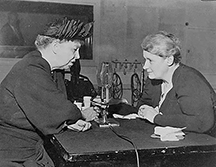 Then Mary Margaret read live copy. OR Mary Margaret had her guests read live copy. Sales for advertisers exploded. (Source: It’s One O’ Clock, Time for Mary Margaret McBride by Susan Ware https://a.co/d/iHShiad)
Then Mary Margaret read live copy. OR Mary Margaret had her guests read live copy. Sales for advertisers exploded. (Source: It’s One O’ Clock, Time for Mary Margaret McBride by Susan Ware https://a.co/d/iHShiad)
The historic galaxy of remarkable women talk show hosts is vast: WOR (Always number one through most of its history) Martha Deane, Dora McCann, Patsy McCann, Mary Healy, Pegeen Fitzgerald, Arlene Francis, Sherrye Henry, Joan Hamburg — yes, all at the same time. Throughout the country the stars include: Sally Jessy Raphael (20+ years on major market radio), Dr. Ruth Westheimer, Dr. Tony Grant, Annie Aiello, Mimi Benzell, Dorothy Kilgallen, Johnnie Putman and the most powerful broadcaster in Ireland, Marian Finucane. (Worth the listen: https://www.rte.ie/radio/radio1/clips/21683976/)
The audience for the content featured by those hosts is thriving and watching daytime TV. Before 1982, daytime TV was the happy land of soap operas and game shows. Then, as content delivered by women hosts left radio, it was embraced by TV. Sally! Dr. Ruth! Oprah! Ellen! The View, The Chat, The Chew, Jenny Jones, Joan Rivers, Queen Latifah, Kelly Clarkson, Ricki Lake.
Today daytime talk TV is a $4 billion business. I take credit for… a lot. I am proudest of the fact that few execs have hired as many women managers and women hosts.
Question to talk radio chieftains, where are the women hosts?
Walter Sabo was the youngest Executive Vice President in the history of NBC. The youngest VP in the history of ABC. He was a consultant to RKO General longer than Bill Drake. Walter was the in-house consultant to Sirius for eight years. He has never written a resume. Contact him at walter@sabomedia.com. or mobile 646-678-1110. Hear Walter Sterling at www.waltersterlingshow.com.



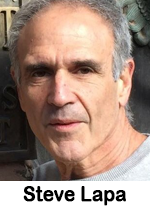 It’s that time of year. College graduates are pushing out resumes. Are you open for entry level sellers? Any turnover on your sales team this year?
It’s that time of year. College graduates are pushing out resumes. Are you open for entry level sellers? Any turnover on your sales team this year?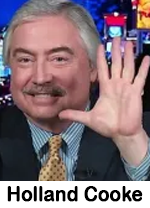 Has this happened to you? Moments after you have met someone, you forget his or her name? OOPS.
Has this happened to you? Moments after you have met someone, you forget his or her name? OOPS.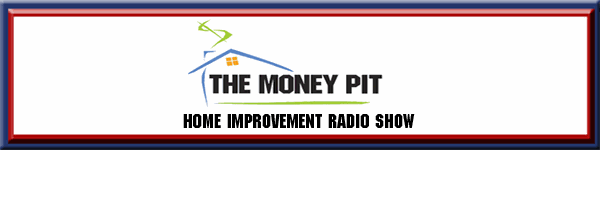
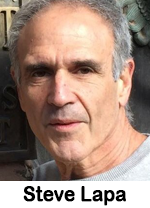 How about a collective “thank you” to the 45th president of the United States for keeping your talk radio programming relevant, timely, unpredictable and most of all engaging?
How about a collective “thank you” to the 45th president of the United States for keeping your talk radio programming relevant, timely, unpredictable and most of all engaging?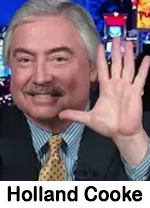 Mark Twain reckoned that “the difference between the almost right word and the right word is the difference between the lightning bug and the lightning.”
Mark Twain reckoned that “the difference between the almost right word and the right word is the difference between the lightning bug and the lightning.”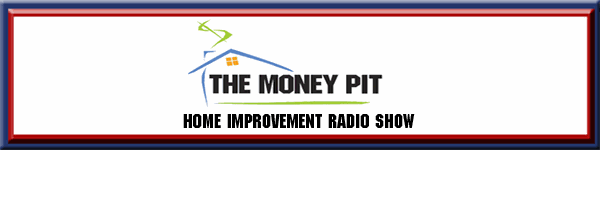
 Last week I had the privilege of moderating a panel at the TALKERS conference. Confession: I listen to speech patterns and tones more than words.
Last week I had the privilege of moderating a panel at the TALKERS conference. Confession: I listen to speech patterns and tones more than words.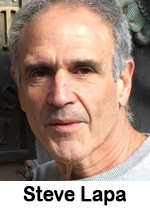 I’m sorry.
I’m sorry.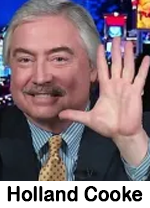 How will AI tools like ChatGPT impact the way we work? The clues are everywhere. Several client stations have automated weather, and even with your consultant’s trained ear, I had to ask. And yes, she’s a robot.
How will AI tools like ChatGPT impact the way we work? The clues are everywhere. Several client stations have automated weather, and even with your consultant’s trained ear, I had to ask. And yes, she’s a robot.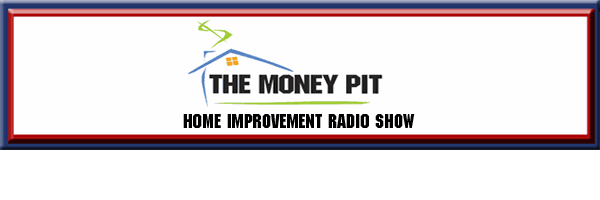
 Michael Harrison, founder and publisher of TALKERS, and the man who invented the term AOR – let’s not forget – strongly requested that I share this story about a remarkable event we experienced. Michael describes it as the “greatest promotion” he ever witnessed at a non-commercial function involving broadcasters… so I really have no choice but to accommodate him.
Michael Harrison, founder and publisher of TALKERS, and the man who invented the term AOR – let’s not forget – strongly requested that I share this story about a remarkable event we experienced. Michael describes it as the “greatest promotion” he ever witnessed at a non-commercial function involving broadcasters… so I really have no choice but to accommodate him.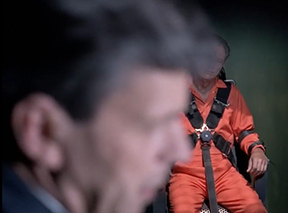 biography. I wrote him a letter inviting him to fly to New York to perform the scene live at our anniversary lunch at the National Arts Club. Two appealing prospects: Manhattan and the famous Club on Gramercy Park. Shockingly, he actually called and said if I would also fly his girlfriend in, he would do it! HE WOULD DO IT. Crap, now I had to do everything else. Invite all 200 wedding guests, stage a show, and not tell anyone that it was going to happen. Katie did not know.
biography. I wrote him a letter inviting him to fly to New York to perform the scene live at our anniversary lunch at the National Arts Club. Two appealing prospects: Manhattan and the famous Club on Gramercy Park. Shockingly, he actually called and said if I would also fly his girlfriend in, he would do it! HE WOULD DO IT. Crap, now I had to do everything else. Invite all 200 wedding guests, stage a show, and not tell anyone that it was going to happen. Katie did not know.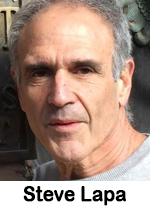 Until NASA approves company logos on rockets, the fastest billboards an advertiser can buy move at over 200 miles per hour, weigh less than seven ounces and are three-hundredths of an inch thick.
Until NASA approves company logos on rockets, the fastest billboards an advertiser can buy move at over 200 miles per hour, weigh less than seven ounces and are three-hundredths of an inch thick. A beautiful night. Paul Galvin and William Lear took their girlfriends to a romantic look-out view. Paul asked, “Isn’t this great?” His girlfriend replied, “It would better if we could hear music.”
A beautiful night. Paul Galvin and William Lear took their girlfriends to a romantic look-out view. Paul asked, “Isn’t this great?” His girlfriend replied, “It would better if we could hear music.”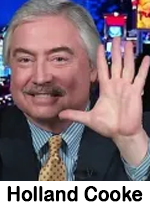 Warning: The Commonwealth of Massachusetts certified me to teach high school English, in the early 1970s, the last year certifications were for life. Though I was lured-away by VU-meter hypnosis, I still carry a red pen. And radio news has it running-dry.
Warning: The Commonwealth of Massachusetts certified me to teach high school English, in the early 1970s, the last year certifications were for life. Though I was lured-away by VU-meter hypnosis, I still carry a red pen. And radio news has it running-dry.
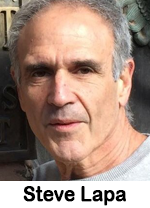 Are you a multiplatform juggler? If you sell or manage for a radio station, the answer is yes.
Are you a multiplatform juggler? If you sell or manage for a radio station, the answer is yes.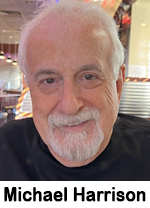 There are media and there are media. There are platforms and there are platforms. Not all cultural artifacts are equal in terms of their utilitarian versus cultural value. Damn the tone-deaf corporate bean counters who are ripping the heart out of the spirit that gives humanity its life force! Marketplace obsolescence should not solely be determined by profit and loss. With all due respect to the idea of public service, what about the concept of loyalty? Shame on the automobile industry! Not only is it turning its back on the needs of millions of people, it is in the process of betraying one of its historic partners in not only commerce – but romance and glory. In other words, the automobile industry owes the radio industry a huge debt. The relationship between cars and radios goes a century deep and has been nothing less than a two-way street. Yes, auto industry, don’t be so hasty to save a few bucks by rushing AM (and then FM) radio out the door. You might just find in the long run that “radio” outlasts the private “car” as a fixture of human activity.
There are media and there are media. There are platforms and there are platforms. Not all cultural artifacts are equal in terms of their utilitarian versus cultural value. Damn the tone-deaf corporate bean counters who are ripping the heart out of the spirit that gives humanity its life force! Marketplace obsolescence should not solely be determined by profit and loss. With all due respect to the idea of public service, what about the concept of loyalty? Shame on the automobile industry! Not only is it turning its back on the needs of millions of people, it is in the process of betraying one of its historic partners in not only commerce – but romance and glory. In other words, the automobile industry owes the radio industry a huge debt. The relationship between cars and radios goes a century deep and has been nothing less than a two-way street. Yes, auto industry, don’t be so hasty to save a few bucks by rushing AM (and then FM) radio out the door. You might just find in the long run that “radio” outlasts the private “car” as a fixture of human activity. What will hurt your chances of sales success more, graduating from a low-ranked college or attending too many inefficient sales meetings?
What will hurt your chances of sales success more, graduating from a low-ranked college or attending too many inefficient sales meetings? Ever lost your phone? It’s an instant sick, sinking feeling. It’s quaint to even call it a “phone,” because it’s…everything. Including us. Like the transistor radio Boomers toted in our youth, it’s audio in your pocket.
Ever lost your phone? It’s an instant sick, sinking feeling. It’s quaint to even call it a “phone,” because it’s…everything. Including us. Like the transistor radio Boomers toted in our youth, it’s audio in your pocket.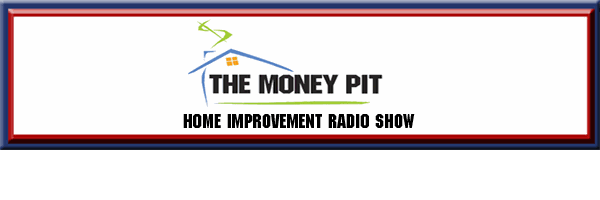
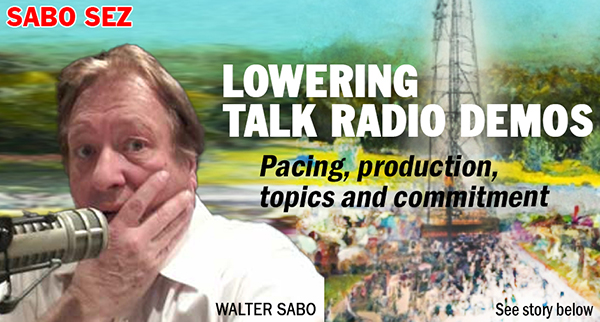
 Tik-Tok is hot (largely among users too young to be heavy AM/FM listeners) and it’s in-the-news (about its possible ban). And, yes, Facebook remains T-Rex in the social media jungle. But people on Twitter seem to live there.
Tik-Tok is hot (largely among users too young to be heavy AM/FM listeners) and it’s in-the-news (about its possible ban). And, yes, Facebook remains T-Rex in the social media jungle. But people on Twitter seem to live there.
 You have still have six weeks to make Father’s Day your sales success. Stop taking for granted, this always undersold 100-plus-years-old celebration.
You have still have six weeks to make Father’s Day your sales success. Stop taking for granted, this always undersold 100-plus-years-old celebration.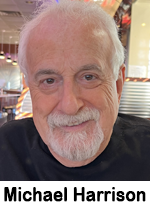 of South Florida-based Lapcom Communications Corporation – a consultation and marketing firm that specializes in helping radio stations and program providers stay afloat financially and actually thrive in these uncertain times of digital media disruption.
of South Florida-based Lapcom Communications Corporation – a consultation and marketing firm that specializes in helping radio stations and program providers stay afloat financially and actually thrive in these uncertain times of digital media disruption.  His career goes back more than four decades during which he has served in various management capacities at some of the nation’s biggest radio and television operations in addition to working with major names in talent. Harrison and Lapa engage in a productive chat about the existential challenges facing radio as well as some of the age-old techniques of sales and marketing that withstand the test of time. Lapa, who will be moderating the sales panel at the forthcoming TALKERS 2023 conference on June 2, states, “We have to get radio out of the emergency room and into recovery.”
His career goes back more than four decades during which he has served in various management capacities at some of the nation’s biggest radio and television operations in addition to working with major names in talent. Harrison and Lapa engage in a productive chat about the existential challenges facing radio as well as some of the age-old techniques of sales and marketing that withstand the test of time. Lapa, who will be moderating the sales panel at the forthcoming TALKERS 2023 conference on June 2, states, “We have to get radio out of the emergency room and into recovery.”  quarter to $21.7 million compared to the same period last year. A significant part of the increase in station operating expense for the quarter was due to a $272 thousand increase in our self-insured health care costs and a $446 thousand increase in employee compensation, including payroll taxes at the station level. After a number of years of holding the company’s compensation expenses flat, we decided that adjustments in our employee compensation were warranted in consideration of the economic times and inflationary environment.”
quarter to $21.7 million compared to the same period last year. A significant part of the increase in station operating expense for the quarter was due to a $272 thousand increase in our self-insured health care costs and a $446 thousand increase in employee compensation, including payroll taxes at the station level. After a number of years of holding the company’s compensation expenses flat, we decided that adjustments in our employee compensation were warranted in consideration of the economic times and inflationary environment.”  It’s the most effective tactic in marketing: Free samples. And the attorneys, financial advisors, real estate agents, veterinarians, and other ask-the-expert hosts who broker time for weekend call-in shows can drum up lots of new business…IF they execute well.
It’s the most effective tactic in marketing: Free samples. And the attorneys, financial advisors, real estate agents, veterinarians, and other ask-the-expert hosts who broker time for weekend call-in shows can drum up lots of new business…IF they execute well.
 The decision to change WABC from music to talk back in 1982 was not made by corporate, it was made by its then-program director, Jay Clark. Corporate was hoping he would approve the change, “they” lobbied for it, but the call was the ultimate responsibility of the program director. The business plan for WABC as a talk station predicted it to be profitable in year 10. (That’s because KABC, Los Angeles took 10 years to turn a profit.) As it turned out, WABC turned a profit in year 11.
The decision to change WABC from music to talk back in 1982 was not made by corporate, it was made by its then-program director, Jay Clark. Corporate was hoping he would approve the change, “they” lobbied for it, but the call was the ultimate responsibility of the program director. The business plan for WABC as a talk station predicted it to be profitable in year 10. (That’s because KABC, Los Angeles took 10 years to turn a profit.) As it turned out, WABC turned a profit in year 11. Many years ago, I received a late-night call from a legendary radio talk show host who had just been let go by management at the iconic major market station where he had been presiding over the airwaves for several decades. His ratings had begun to downtrend a bit, but he still was a big draw for audience and advertisers. He was one of the biggest names in talk radio history and his still-sizable audience loved him. Thus, the unexpected news of his severance blindsided him with a wallop and surprised the heck out of the biz. Everyone was buzzing about it.
Many years ago, I received a late-night call from a legendary radio talk show host who had just been let go by management at the iconic major market station where he had been presiding over the airwaves for several decades. His ratings had begun to downtrend a bit, but he still was a big draw for audience and advertisers. He was one of the biggest names in talk radio history and his still-sizable audience loved him. Thus, the unexpected news of his severance blindsided him with a wallop and surprised the heck out of the biz. Everyone was buzzing about it. I’m one of the lucky ones. In my marketing work I get to speak with radio/audio sellers and managers around the country at companies privately and publicly owned, as well as that increasingly rare breed – the radio station owner/operator. They all share one common fault. Yes, I said fault. Can you guess what it is? Probably not, because you too may share the same fault.
I’m one of the lucky ones. In my marketing work I get to speak with radio/audio sellers and managers around the country at companies privately and publicly owned, as well as that increasingly rare breed – the radio station owner/operator. They all share one common fault. Yes, I said fault. Can you guess what it is? Probably not, because you too may share the same fault.